Coccidia are also intestinal parasites, but are not worms. They are single celled organisms picked up in the environment similar to the way most worms are acquired-by walking through infected soil and then licking of the feet.
Once in the intestine the organisms multiply within an intestinal cell and destroy it. Each of the new organisms infects another cell and the process continues, destroying an exponential amount of intestinal cells. This process results in a watery, and sometimes bloody diarrhea. Coccidia organisms are shed in the feces of an infected pet and once in the environment can be infective within 12 hours. It takes 3-11 days for appearance of coccidia in the feces after ingestion.
Coccidiosis is most common in young puppies and immunocompromised animals. Diagnosis is made via finding organisms on a fecal flotation but sometimes small numbers can be hard to find leading to a false negative result. Sympotmatic animals are often treated based on signs of infection, especially if they have already been dewormed with routine products several times are parvo virus negative.
The most common drug for treating Coccidia is Albon but there are some other drugs that have been used. Albon is often administered for 5-10 days. Because the organisms become infective so rapidly, re-infection is a common problem. Picking up all fresh stools is vital in eliminating infection.
Coccidia are resistant to all routine disinfectants but can be eliminated by steam cleaning-which is obviously impractical for the backyard! For this reason, all in-contact animals, especially puppies are often treated prophylactically as a means of eliminating and preventing infection in a household, kennel, or shelter.
Prognosis is usually good unless the animal is severely infected and dehydrated. Most treatment is done as an outpatient unless IV fluids are needed
Zoonotic Potential
The species of coccidia that infects dogs is not infective to people.
The Big Number 3
3 weeks ago
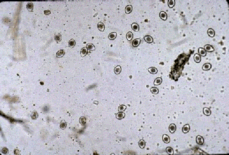
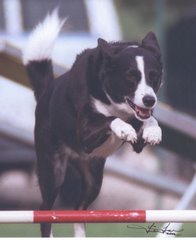
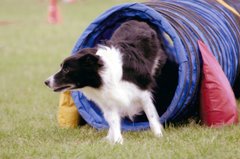
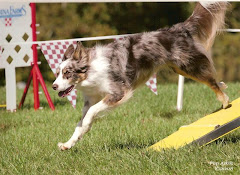.jpg)
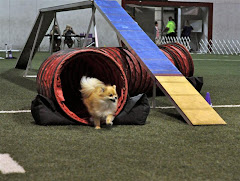.jpg)



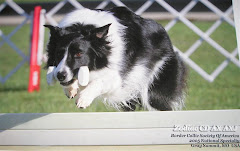.jpg)



3 comments:
Ok Coccidia is one I'm def familiar with, having had puppies come to me with it. I notice some breeders, like people I know who have one one or two litters ever never have any Coccidia and I've noticed anyone with several litters a year or mo seems their litters all have it. So that makes sense because of the infectious nature. When my Breeze came to me,I paid a lot of money and had never done that with a dog ...but she had giardia and Coccidia grrrr. Anyway my vet said that we would treat it but if she ever had puppies they would get it too. Of course she was never going to be bred, but does that mean it stays in the system after being treated maybe at a very low level?
My understanding is that if you treat with Albon, it does. At the shelter where I spend LOTS of time, we use ponazuril. We give 2 doses, 24 hours apart, and that's it.
http://www.veterinarypartner.com/Content.plx?P=A&A=2832&S=2
Yes, albon only stops the reproduction so it's possible that some live coccidia remain. I would not expect them to live forever or guarantee that future pups would need treated but it's possible. Especially since it can live in the environment a long time and is quite common in the environment. Ponazuril (the last time i checked) was cost-prohibitive to use in pets but may be a good alternative for kennels and shelters.
Post a Comment